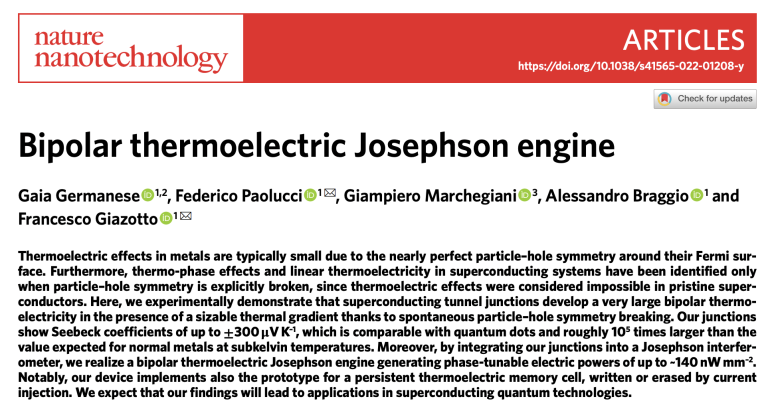Members of the SQEL team have developed a new type of thermoelectric engine that converts heat into electricity through the Josephson effect. The engine, which the team dubbed the “Bipolar thermoelectric Josephson Engine” is based on the effect of spontaneous particle-hole symmetry breaking in superconducting systems and has been published in the prestigious journal Nature Nanotechnology.
The work, carried out by G. Germanese and coworkers, experimentally demonstrates that superconducting tunnel junctions develop very large bipolar thermoelectricity in the presence of a considerable thermal gradient due to the spontaneous breaking of particle-hole symmetry, a novel concept already studied by other members of SQEL.
Our study is then pivotal for groundbreaking investigations of nonlinear thermoelectric effects in different systems ranging from semiconductors and low-dimensional electronic materials to high-temperature superconductors and topological insulators.
More information: Germanese, G., Paolucci, F., Marchegiani, G. et al. Bipolar thermoelectric Josephson engine. Nat. Nanotechnol. (2022). https://doi.org/10.1038/s41565-022-01208-y

 Bipolar thermoelectric Josephson engine
Bipolar thermoelectric Josephson engine